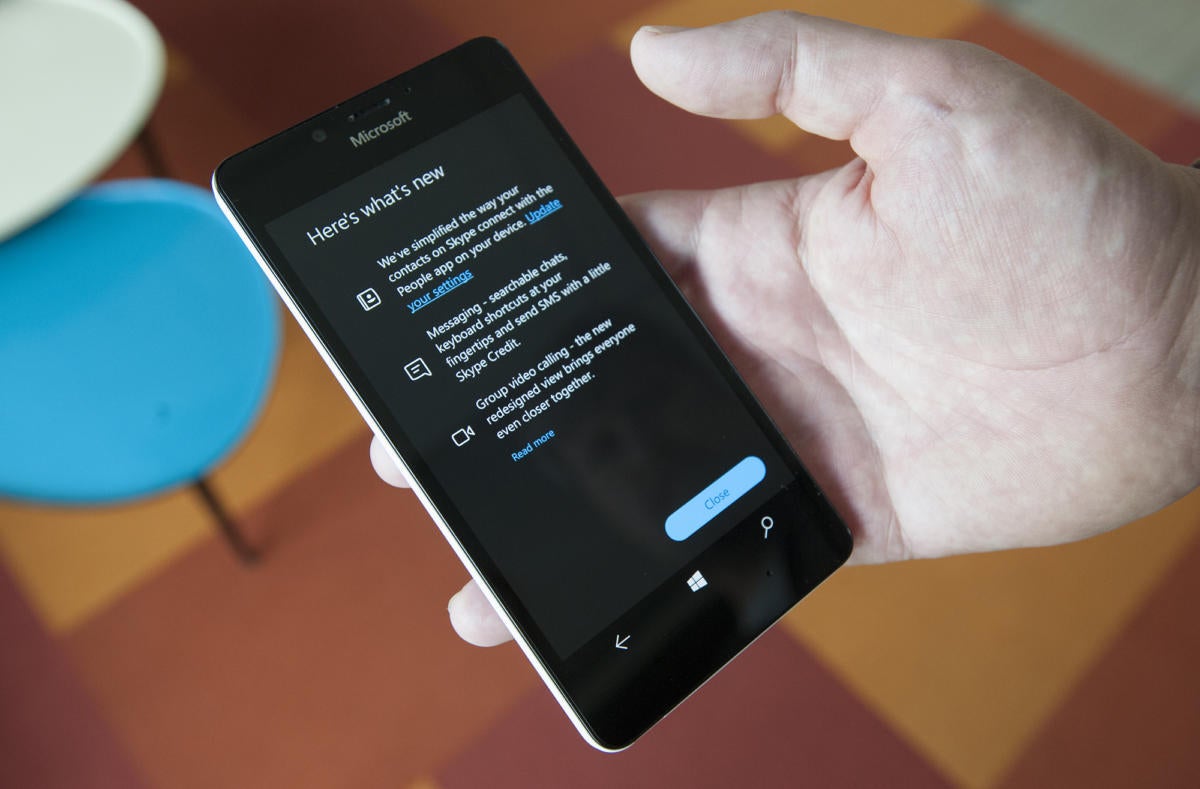In 2013, Microsoft’s then-CEO Steve Ballmer threw one of his monumental temper tantrums with the board of directors, threatening to quit if they did not approve of his proposed $7.7 billion purchase of Nokia’s handset business.
Rather than take advantage of this opening to finally be rid of him, the board capitulated, and it turned into a disaster. Microsoft would write off the whole acquisition just two years later -- $7.7 billion wasted.
Microsoft soldiered on with the Windows Phone business but its heart clearly wasn’t into it. That much was obvious when Joe Belfiore, then the head of the group, took a year-long sabbatical from the company to travel around the world with his daughter. That told me all I needed to know about Microsoft’s dedication to Windows Phone.
With its most recent quarter, Microsoft made just $5 million on phone sales. Yes, $5 million, about what Apple makes in a minute. The company CFO said she doesn’t expect phone sales to materially contribute to the company in the future, either.
Microsoft has denied it’s exiting the phone business, even if there is no business left to exit. Even though the company has not introduced new phones in 15 months, a lifetime by device standards, CEO Satya Nadella told a Minnesota public radio host "I'm sure we will make more phones, but they will not look like phones that are there today."
Yusuf Mehdi, corporate vice president for the Windows and Devices Group, said the same thing to Bloomberg. "We're not going to come out with another device that someone's done."
So what are they going to come out with? Well, Microsoft Technical Fellow Alex Kipman, who led development of the HoloLens headset, told Bloomberg "The phone is already dead. People just haven't realized it yet."
Initially some Microsoft blogs took this to mean he was talking about Microsoft’s phone business, but I think Microsoft knows its phone is dead. More likely he meant the smartphone as a device and physical form. Kipman went on to say he thought mixed reality technologies would replace the smartphone as a device.
Now granted there is a trend of function consolidation where single-use devices get merged into multi-function devices. The iPhone basically killed the iPod, for example, and 2-in-1s are doing a number on tablets.
I can see the smartphone being merged in with another device, but a mixed reality device will need a major form factor overhaul because no one is going to want to walk around with a HoloLens on their head all day. The mere sight would be ridiculous.
Microsoft faces two challenges -- the first is finding a new form factor that works. A headset is out of the question, and Google Glass didn’t do very well, either. So they need something new that works and is socially tolerable. Good luck with that.
The greater challenge is credibility. The fact is that while Windows Phone was in many ways a superior OS to iOS and Android, Microsoft completely pooched the handset market with the Nokia buy and its failure to secure OEMs. It’s done so well with the Surface tablets and notebooks, too. Perhaps it learned its lessons from the handset failure.
But after the disaster of Windows Phone, falling from a billion dollar business to zero in under three years, any attempt to restart will be an uphill battle of epic proportions.
Microsoft has the resources and the patience, but will it work this time?






